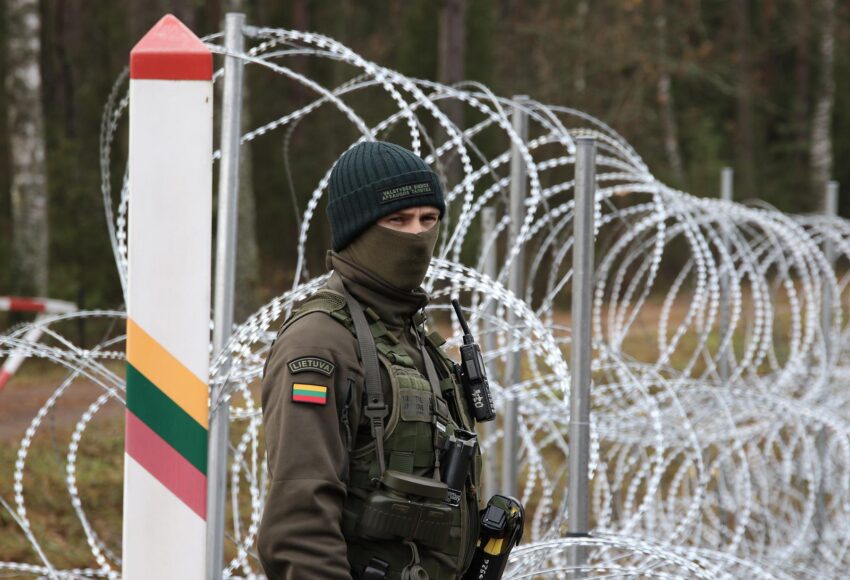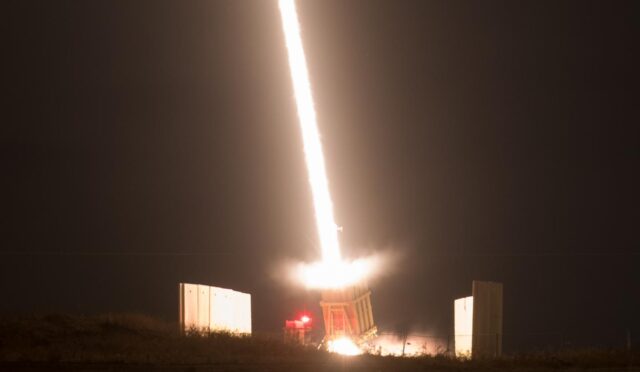Lithuania to Boost Border Security with €1.1 Billion Investment
In a significant move to bolster its defenses, Lithuania has announced a substantial investment of €1.1 billion (approximately $1.2 billion) aimed at strengthening its border with Russia and Belarus. This decision, unveiled by the NATO member state on Monday, comes amidst growing concerns over potential threats from Moscow, especially following the ongoing conflict in Ukraine. As part of the funding, Lithuania will purchase anti-tank mines, a measure reflective of the region’s heightened security needs.
Lithuania’s initiative is not occurring in isolation; it is part of a broader strategy shared by its Baltic neighbors, Latvia and Estonia, who are also fortifying their defenses. The invasion of Ukraine by Russia has alarmed these nations, which now fear becoming targets if Russia achieves its objectives in Ukraine. Consequently, defense capabilities have been enhanced across the board, with a strong focus on border security reforms to address an influx of migrants that Lithuania attributes to Russian provocations.
Defense Ministry’s Perspective on the Initiative
According to Lithuania’s Ministry of Defense, this funding is crucial for effectively “blocking and slowing down the actions of hostile states.” The ministry has emphasized that ongoing efforts are being undertaken to guarantee the integrity of the Baltic defensive line. Notably, Lithuania has committed to allocating five to six percent of its GDP on defense each year from 2026 to 2030, signaling a long-term dedication to enhancing its military capabilities.
Of the overall budget, a significant portion—800 million euros—will be directed specifically towards the acquisition of anti-tank mines, demonstrating a clear tactical focus on ground defense operations. This undertaking aligns with the Lithuanians’ broader strategy to mitigate any potential threats emerging from their eastern neighbors.
Regional Military Exercises and Strategic Withdrawals
The investment plan comes on the heels of recent military activities in the region, notably a video released by Belarus’ Ministry of Defence showcasing joint exercises conducted by Russian and Belarusian troops. This collaboration raises alarms among Baltic states, which perceive such military posturing as a direct threat that necessitates a robust response.
In a related context, this year, the Baltic states joined Finland and Poland in making a contentious decision to withdraw from the Ottawa Convention. This treaty has historically aimed to prohibit the use and stockpiling of anti-personnel mines, but the prevailing security landscape has prompted these nations to reassess their commitments. Humanitarian organizations have criticized this choice, citing the enduring dangers these weapons pose to civilians.
Plans to Fortify the Suwalki Gap
As a key element of its security strategy, Lithuania plans to deploy anti-tank systems and other defensive structures near the Suwalki Gap, a crucial corridor measuring 70 kilometers wide that connects the Baltic states to Poland. This strategic location is flanked by the Russian exclave of Kaliningrad on one side and Belarus, a staunch ally of Russia, on the other.
Measures intended to secure this vulnerable stretch include enhancing irrigation ditches to function as trenches, increasing tree coverage to protect both civilians and military personnel, and implementing advancements in electronic warfare capabilities. The ministry also noted plans for improved observation and early warning systems, highlighting a comprehensive approach to modern defense.







